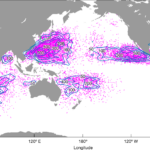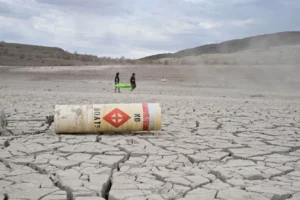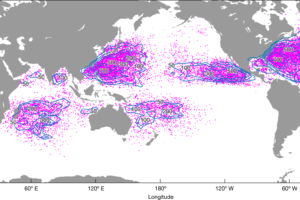The year 2023 marked the hottest year on record due to the impactful El Nino effect, with expectations of temperature records persisting well into the summer of 2024, according to a Turkish climate scientist.
Climate change and global warming have resulted in the 10 hottest years between 2010 and 2022.
The El Nino effect, characterized by a warming of the ocean surface in the central and eastern tropical Pacific Ocean, significantly contributed to 2023 setting temperature records on 179 days.
Levent Kurnaz, the head of Boğazici University’s Center for Climate Change and Policy Studies in Istanbul, highlighted El Nino’s influence, causing global temperatures to surge further.
He emphasized that extreme weather events have intensified with atmospheric warming, attributing half of 2023’s temperature records to this phenomenon.
“2023 stands as humanity’s hottest year, unrivaled in the past 125,000 years. Particularly from July onward, the El Nino effect played a crucial role, pushing temperatures well above average. Previous record years, such as 2016 and 2020 affected by El Nino, pale in comparison to 2023,” said Kurnaz.
He expressed concerns about surpassing the 1.5 degrees Celsius target outlined in the Paris Agreement.
Kurnaz stressed the urgency, citing Libya’s Derna city flood in 2023 as the most extreme weather event. He underscored El Nino’s ability to intensify anticipated weather events and bring unexpected catastrophes.
Predicting El Nino’s continuation in 2024, Kurnaz cautioned about sustained severe weather events and soaring temperatures. Türkiye and Europe are expected to endure an extended heatwave until mid-next summer, perpetuating the streak of record-breaking temperatures.
“We anticipate this trend until at least March and April. El Nino’s forecasting is complex, making June’s predictions challenging. However, indications suggest an intensification of El Nino, with over a 50% likelihood of it being the most severe yet,” he said.
Touching upon Türkiye’s water needs, the climate expert expressed hope for a wetter winter and spring to alleviate the agricultural and water resource impacts from preceding dry years.
Source: Daily Sabah











Add Comment